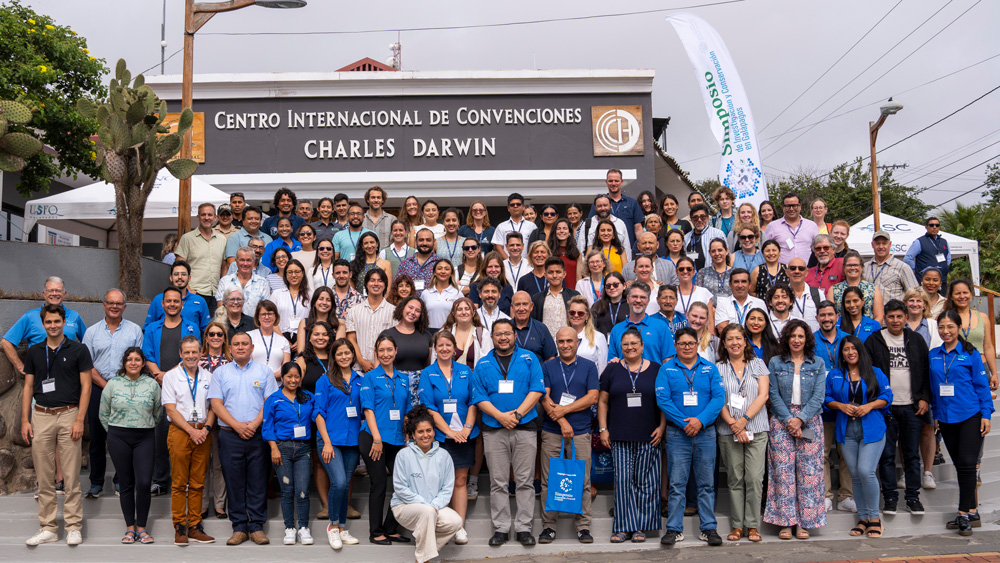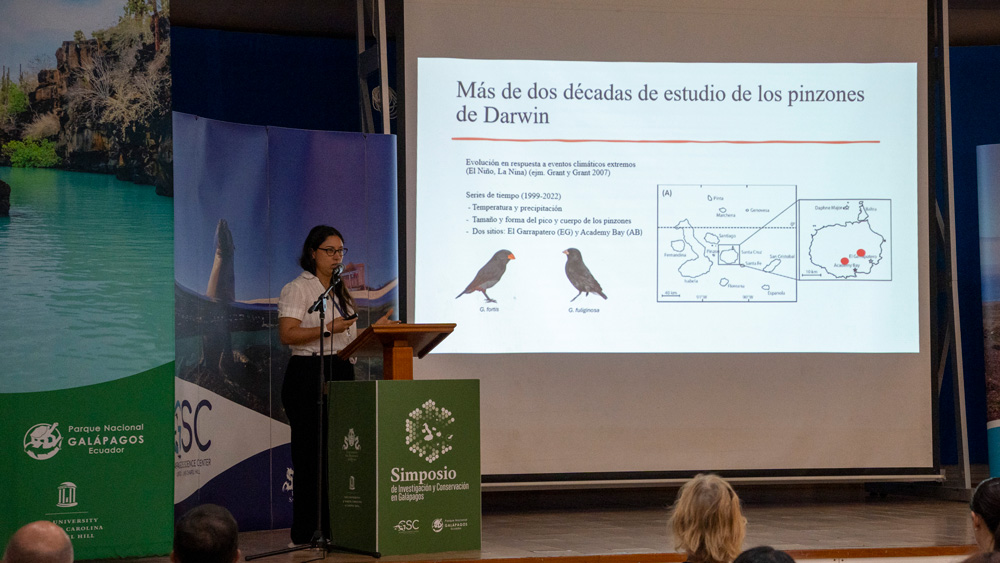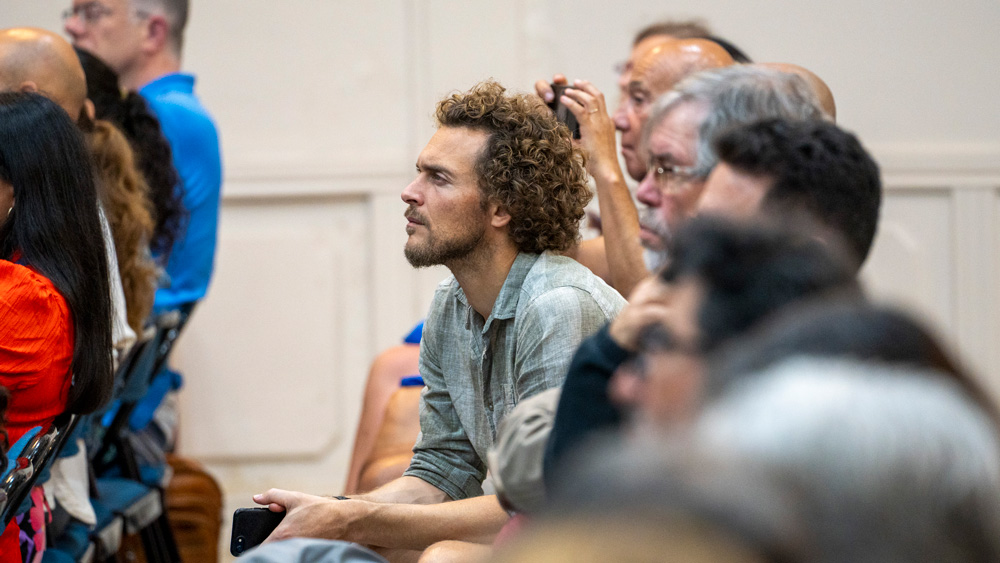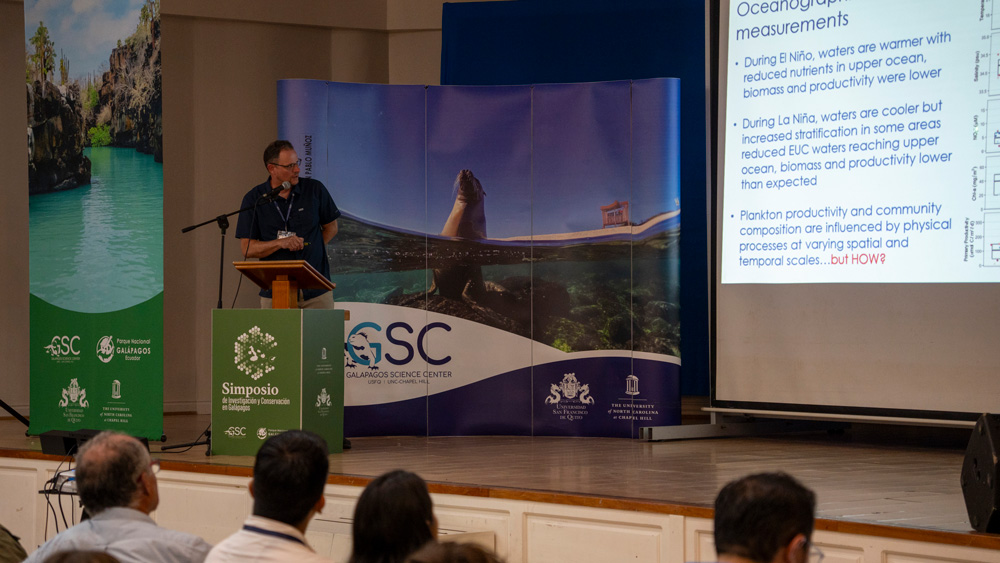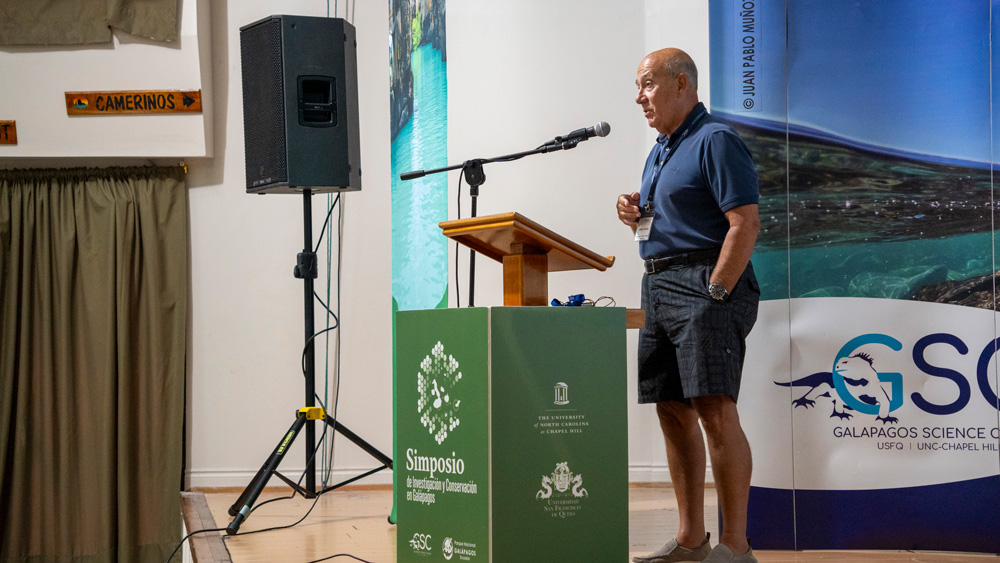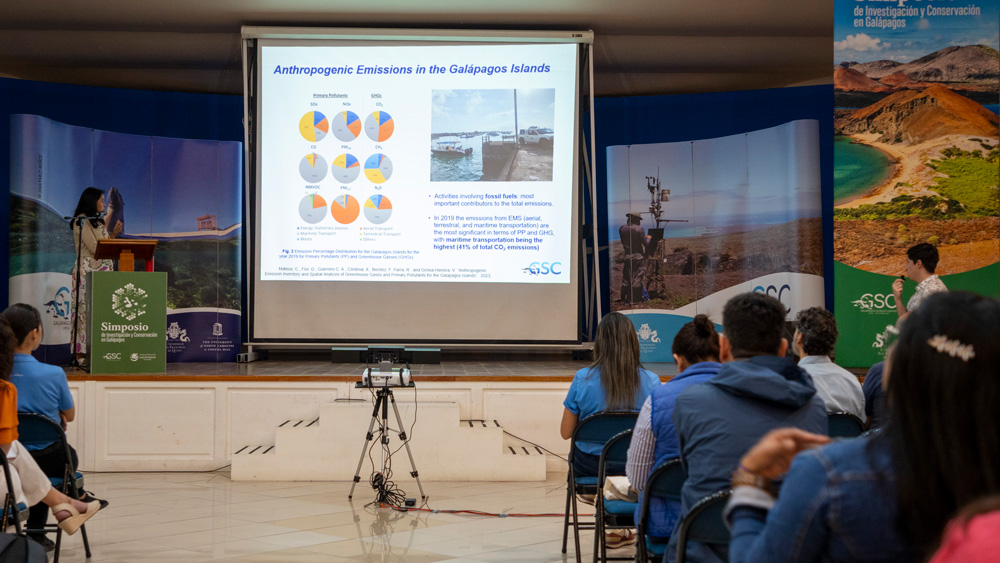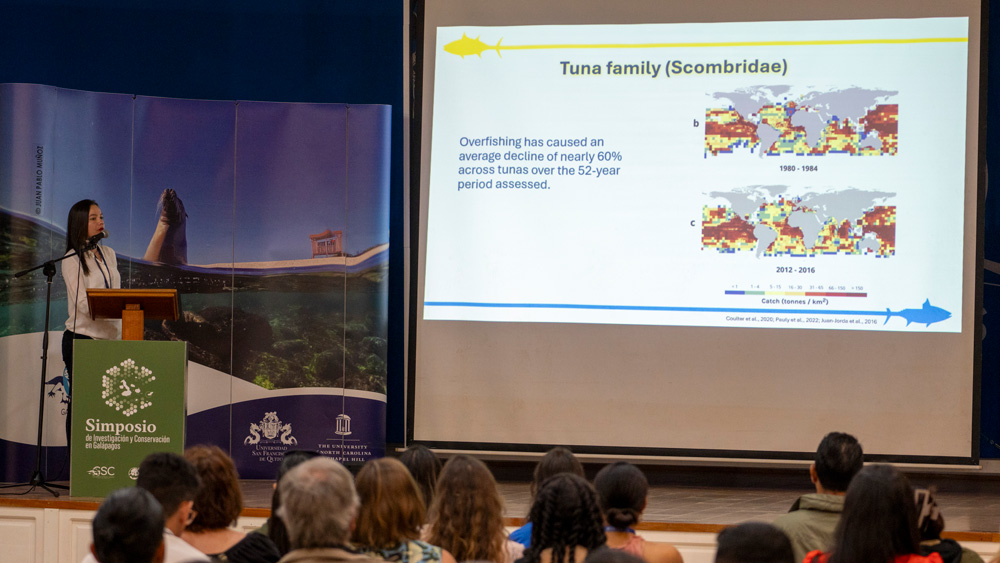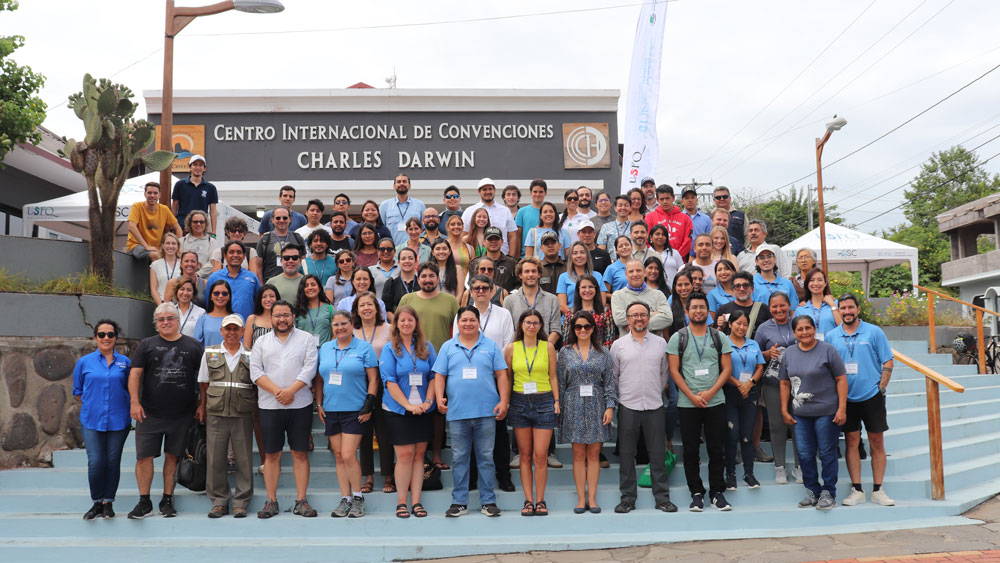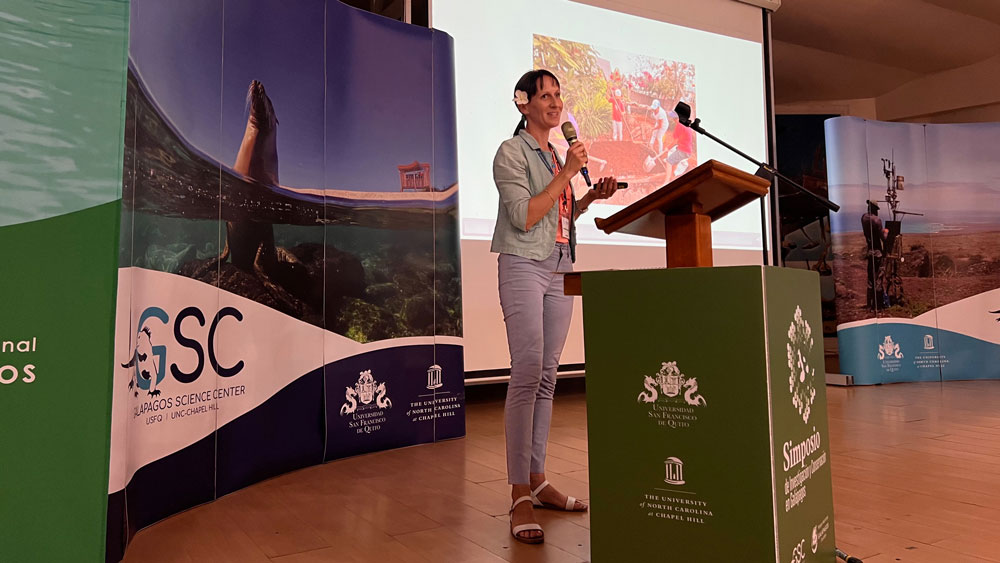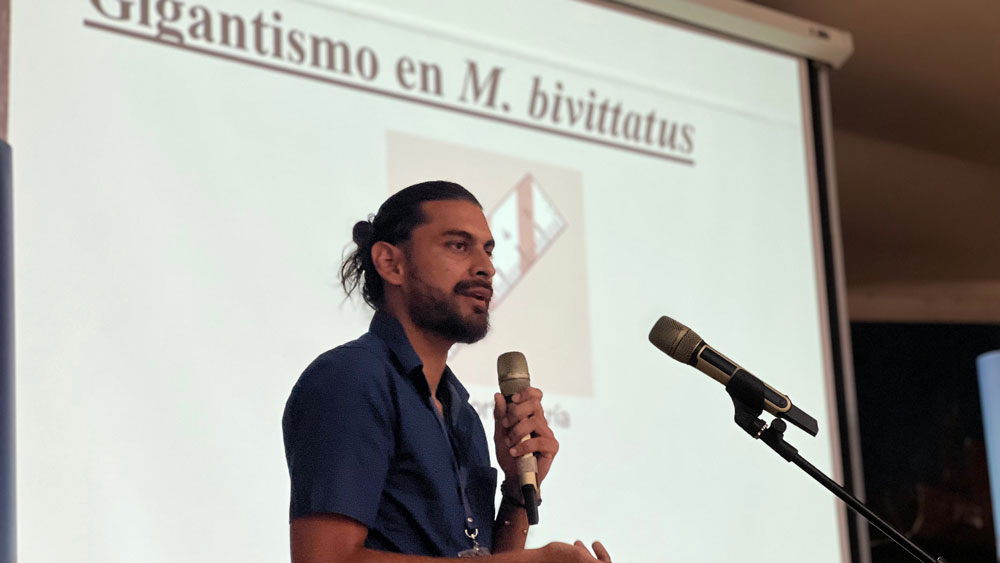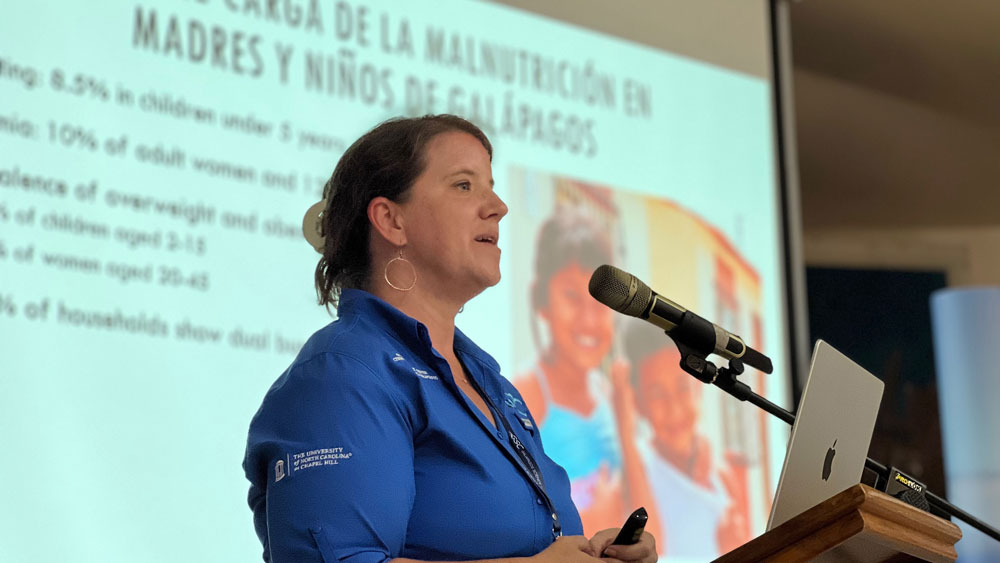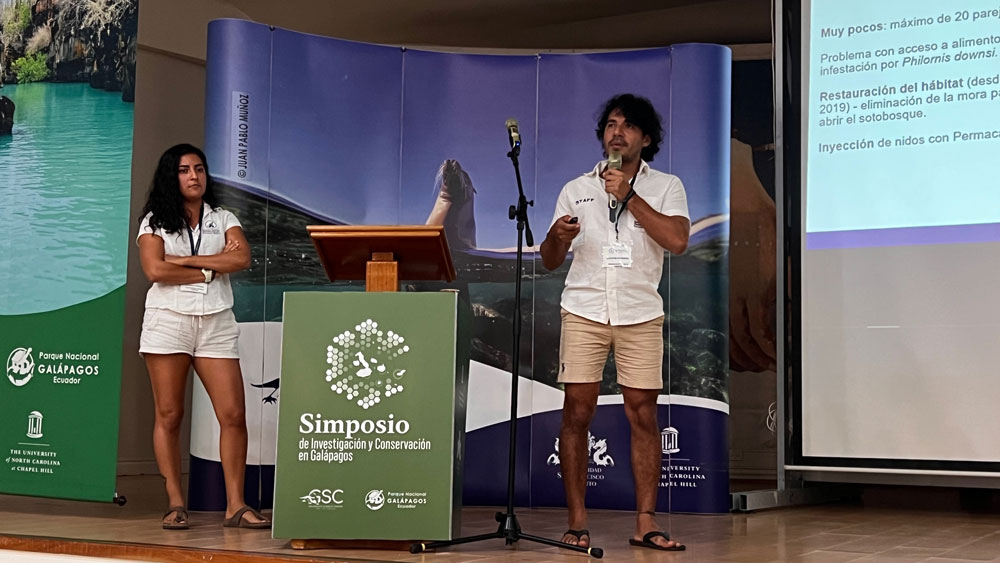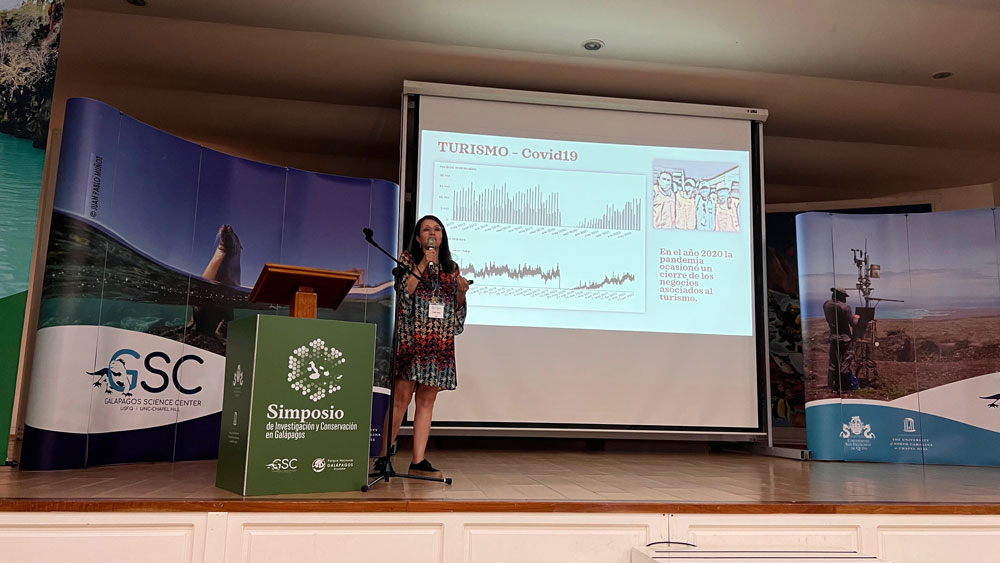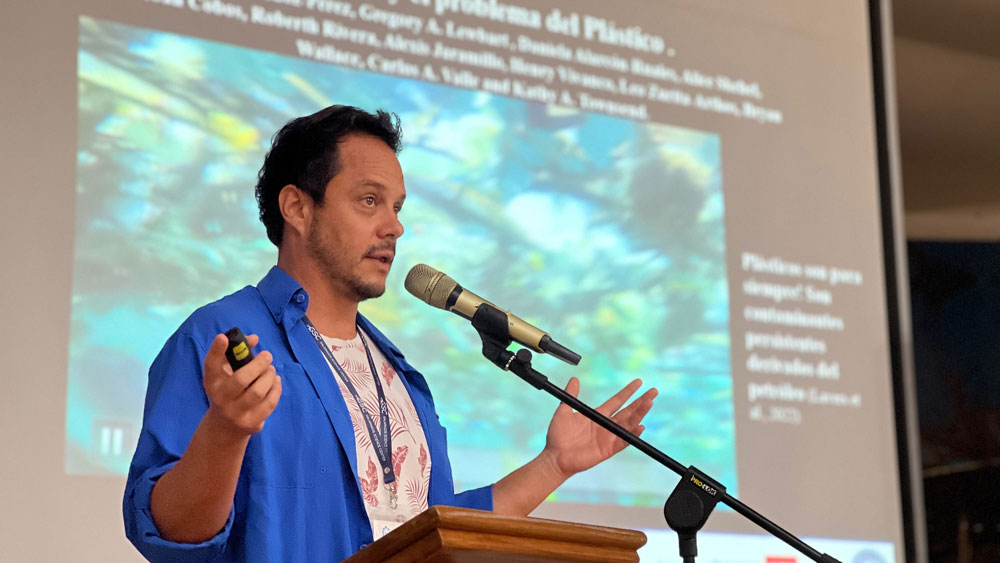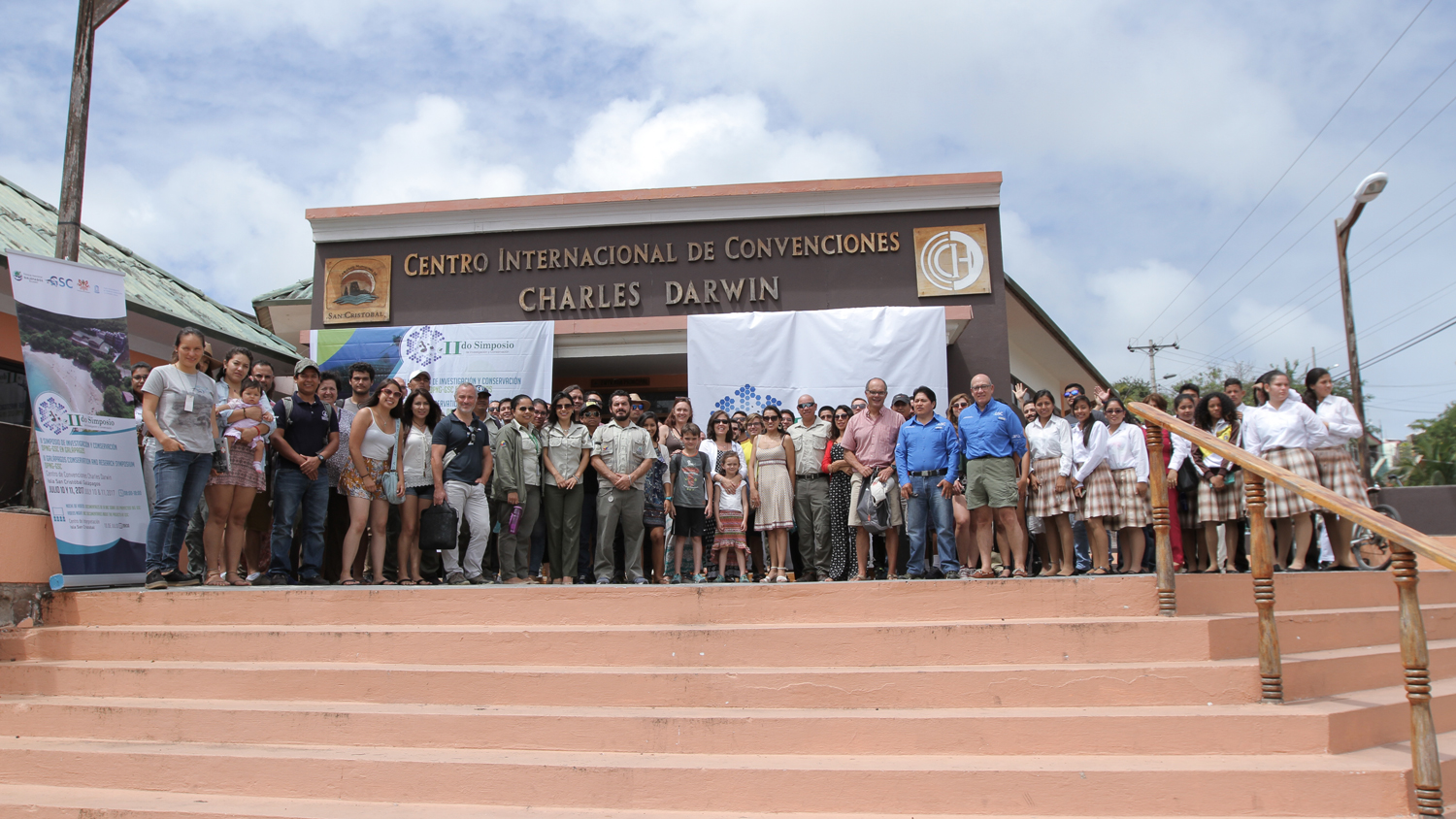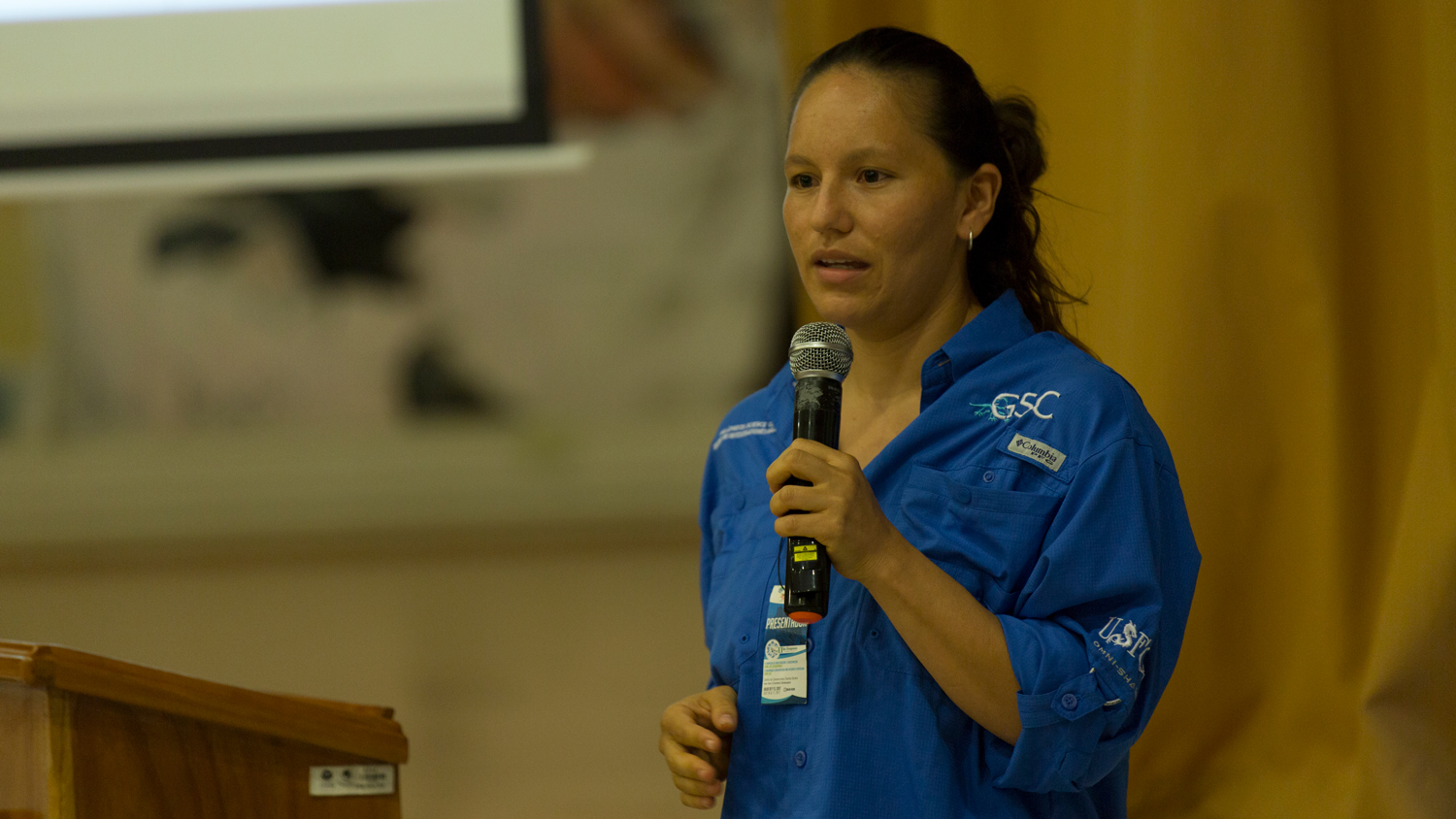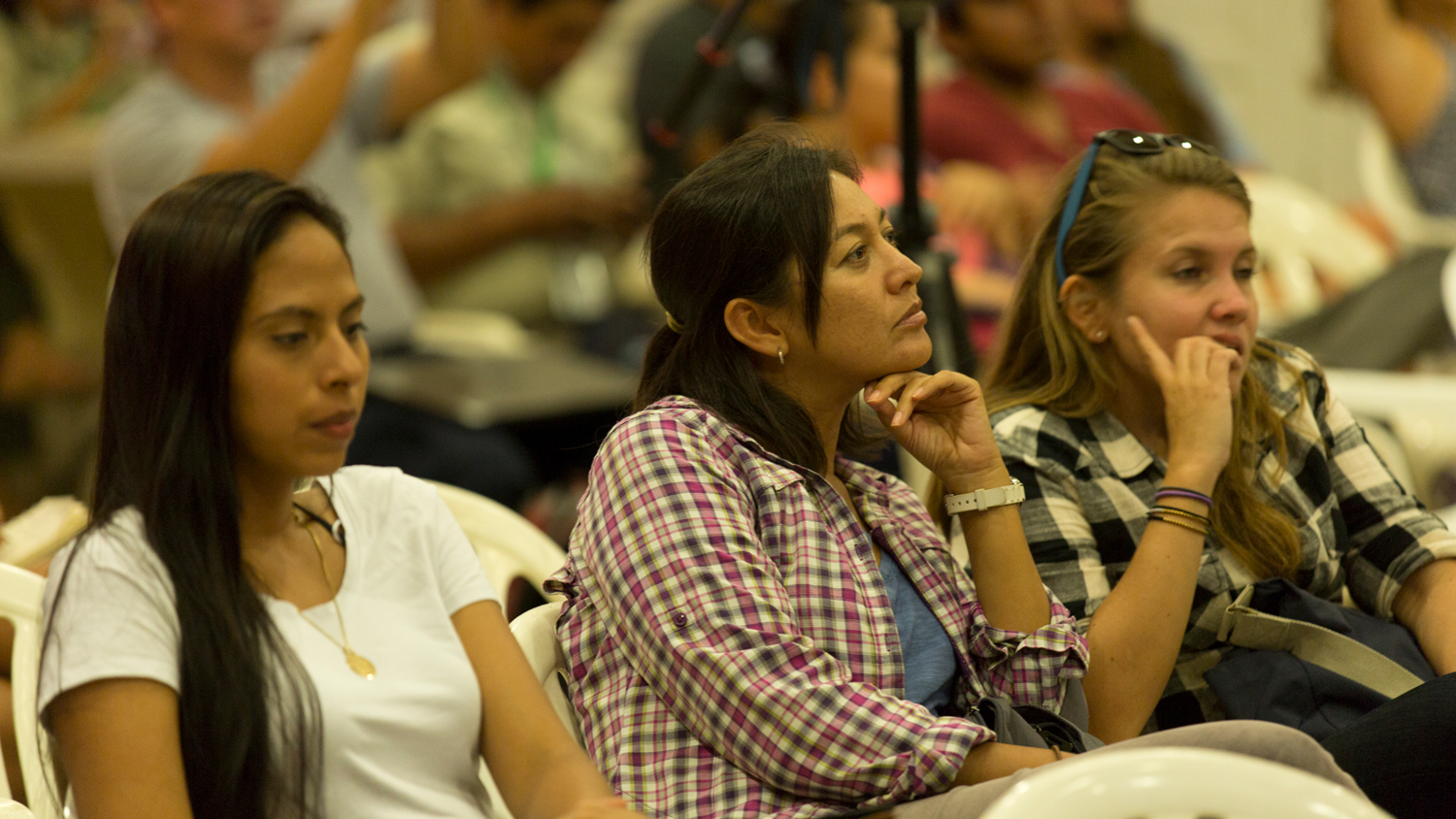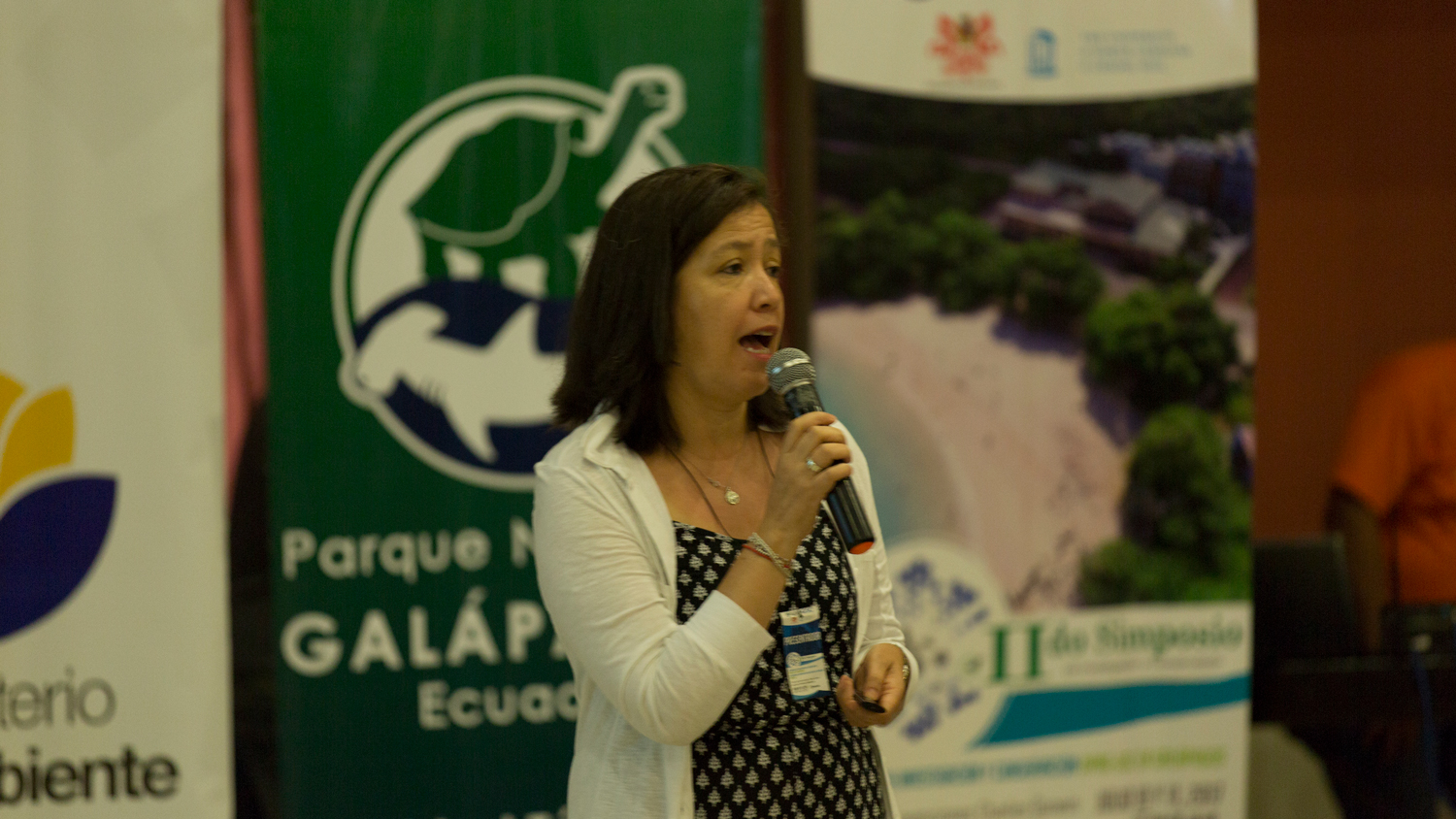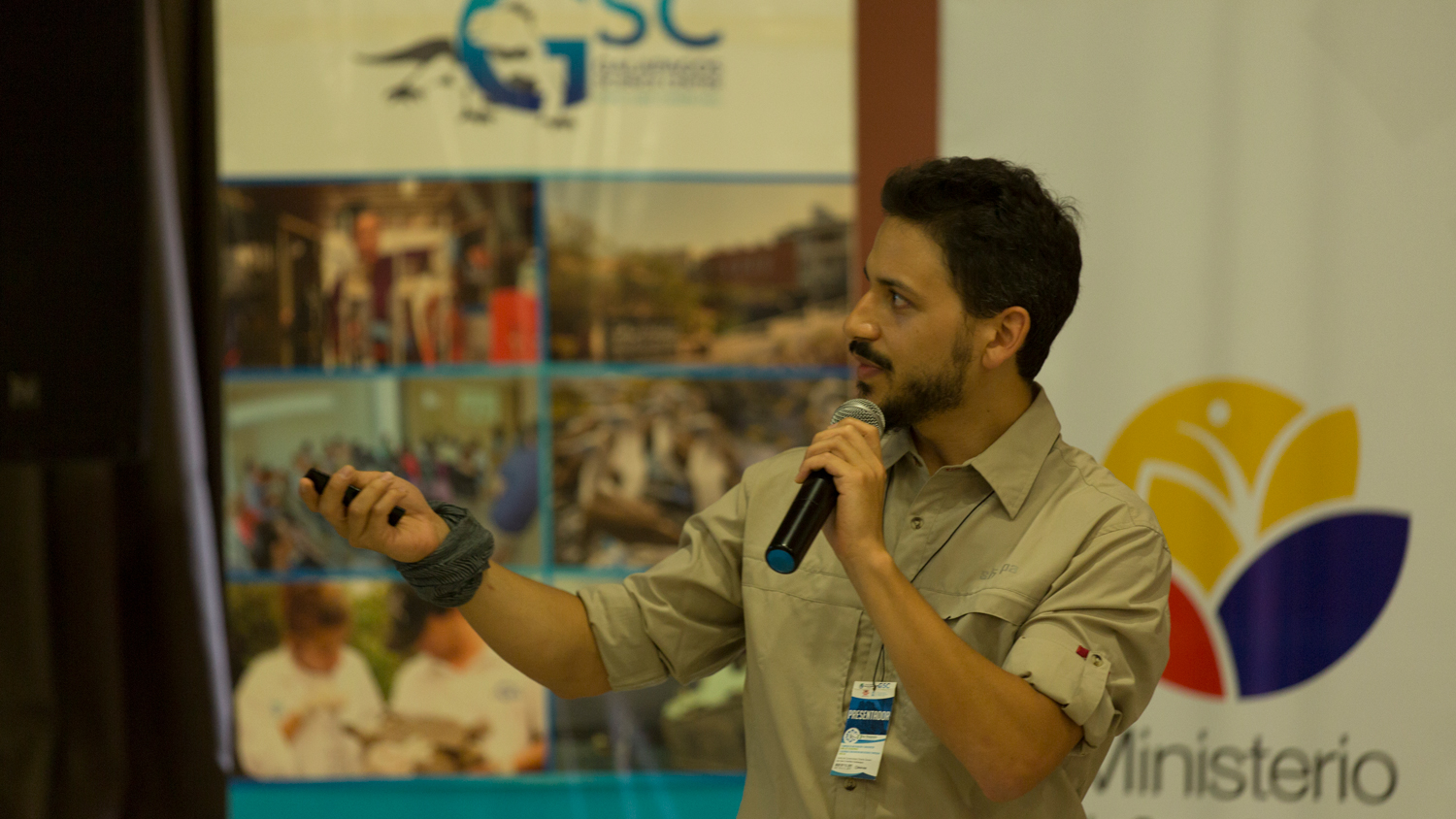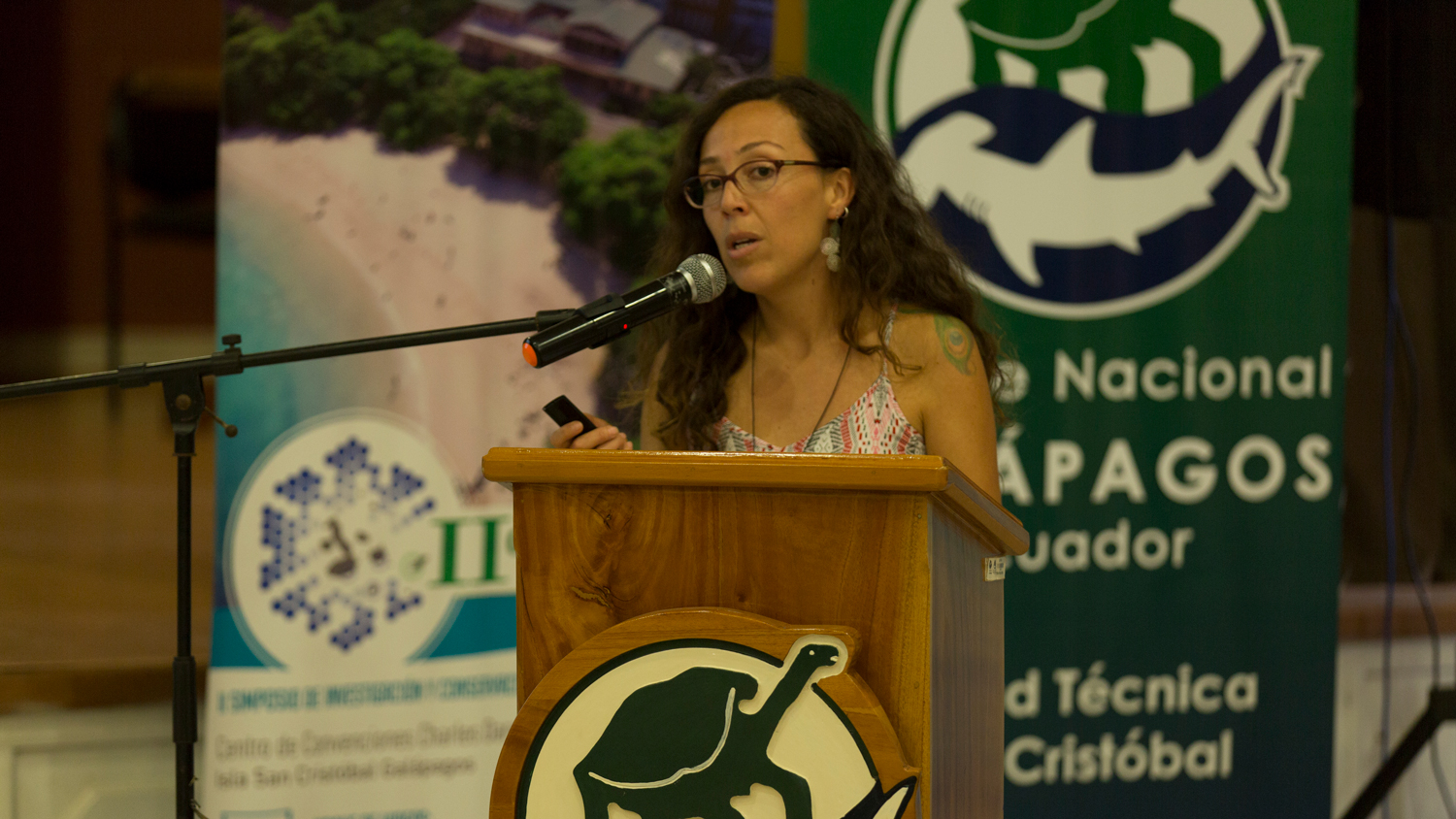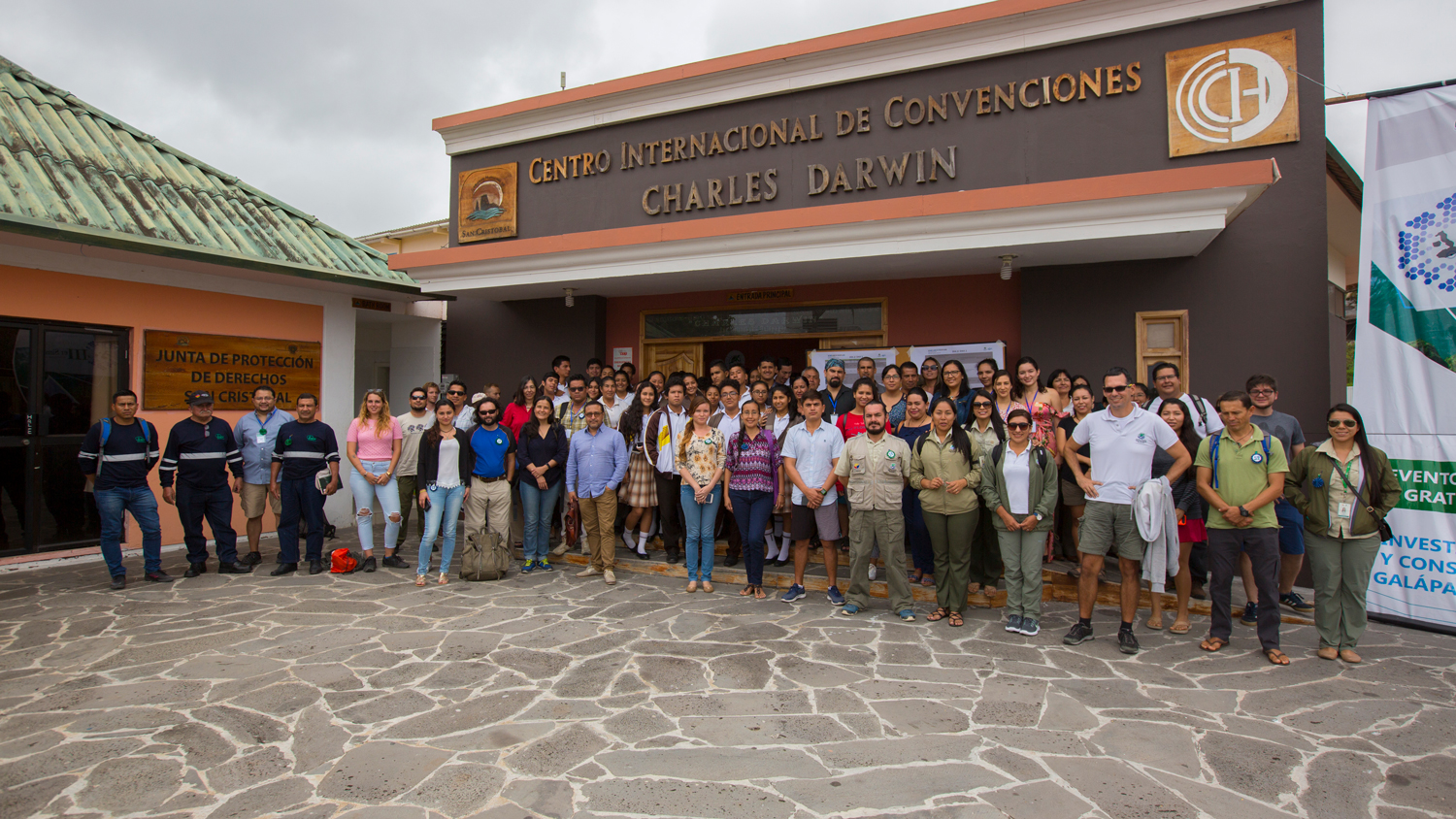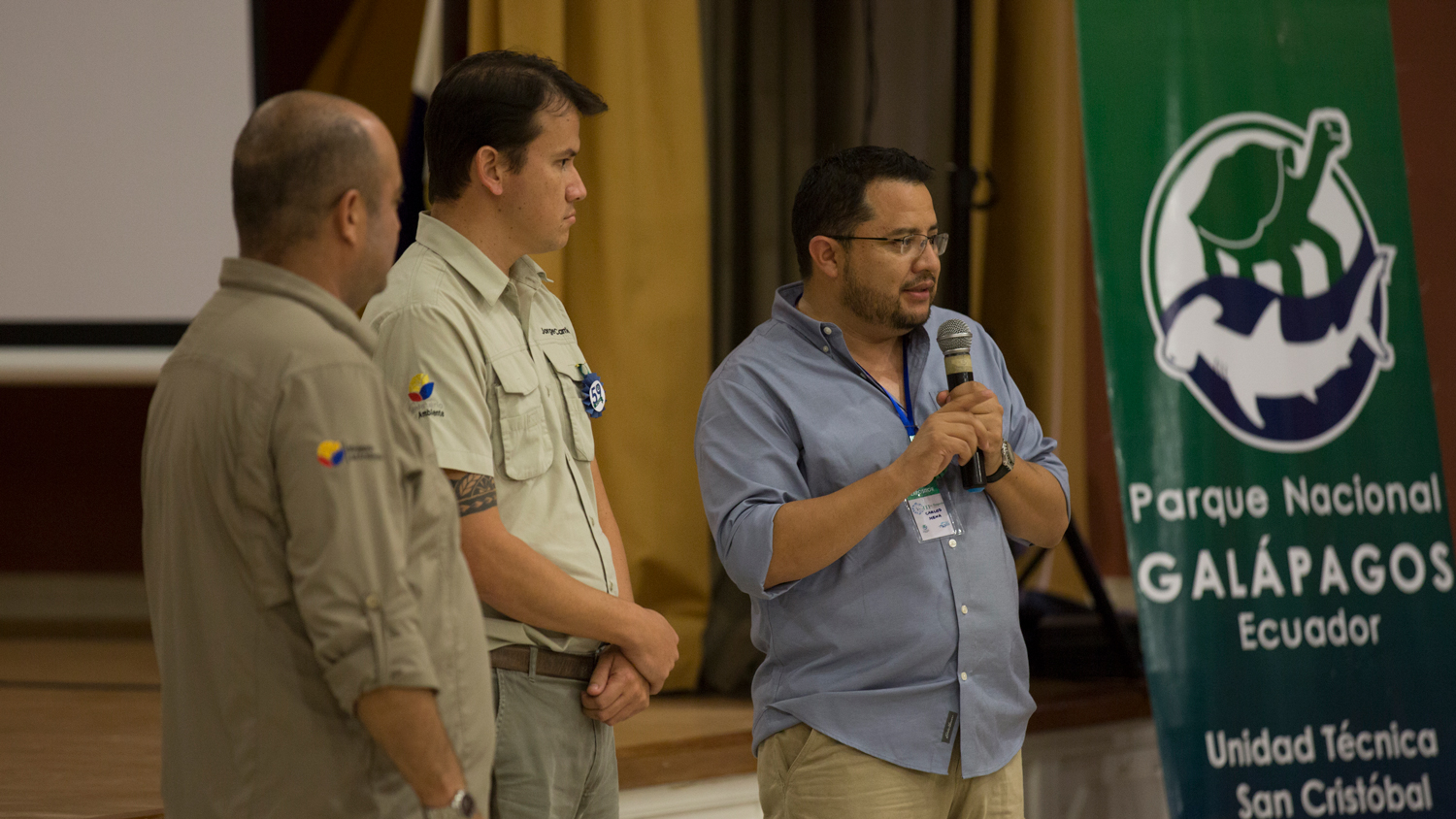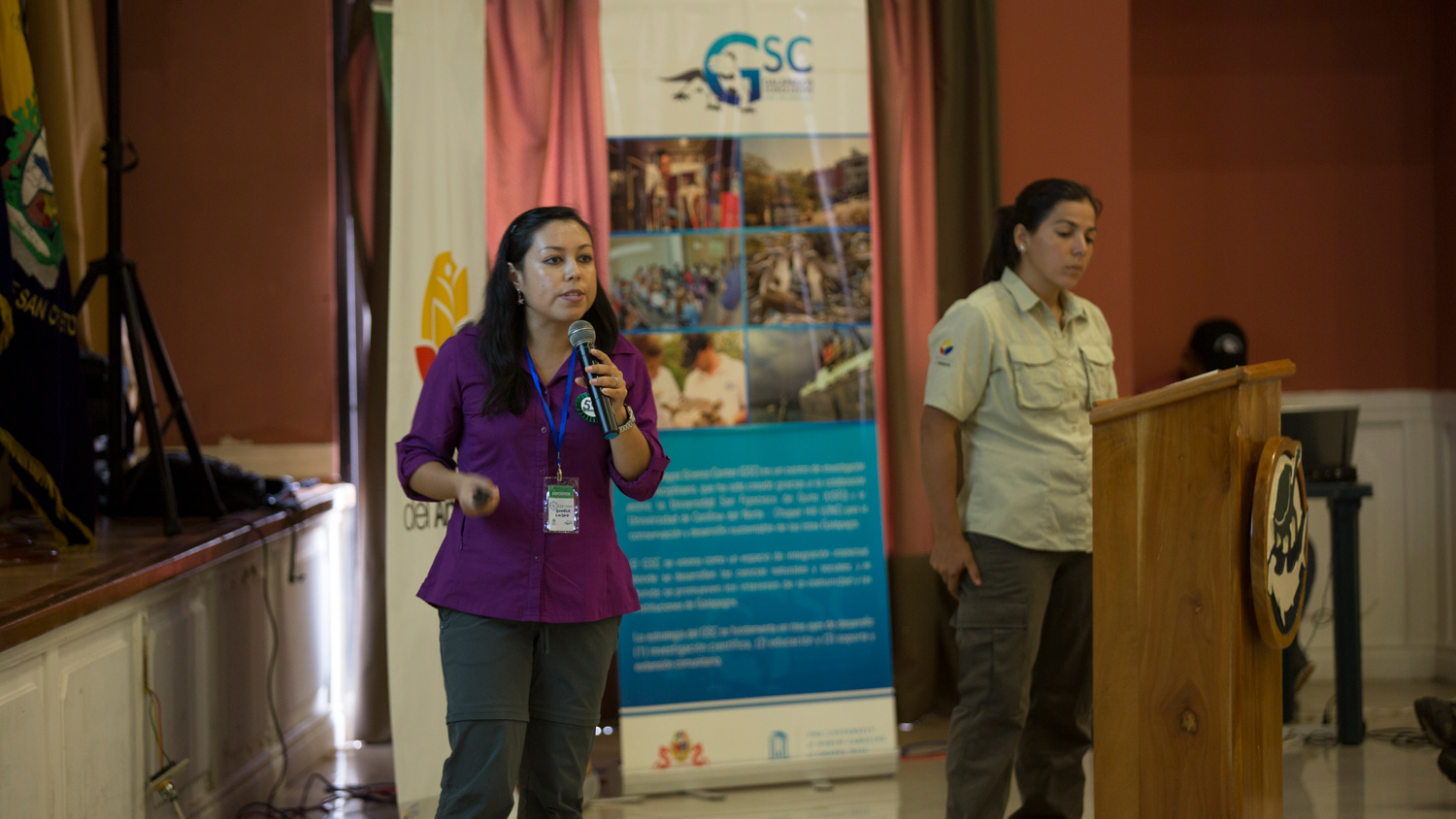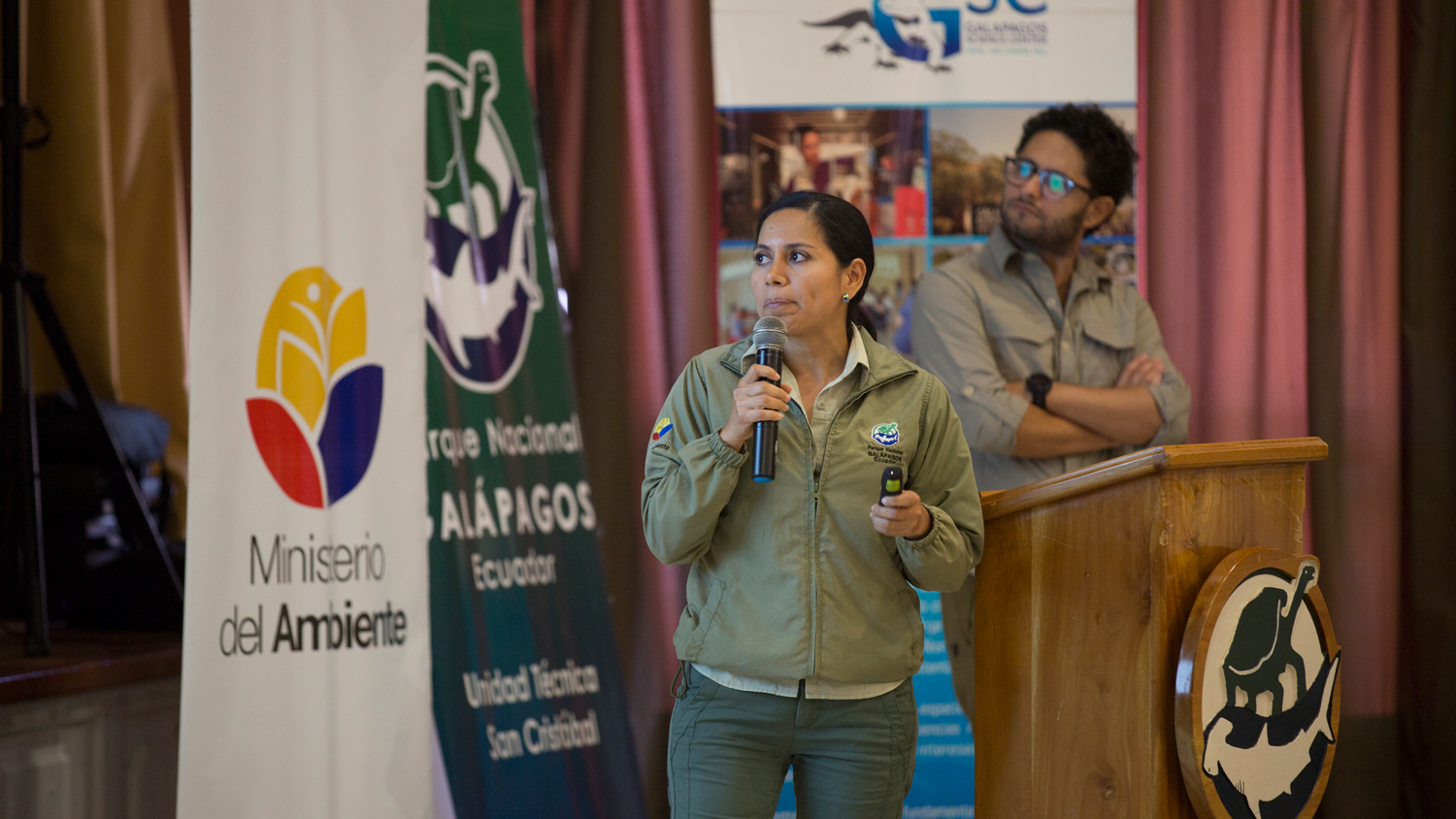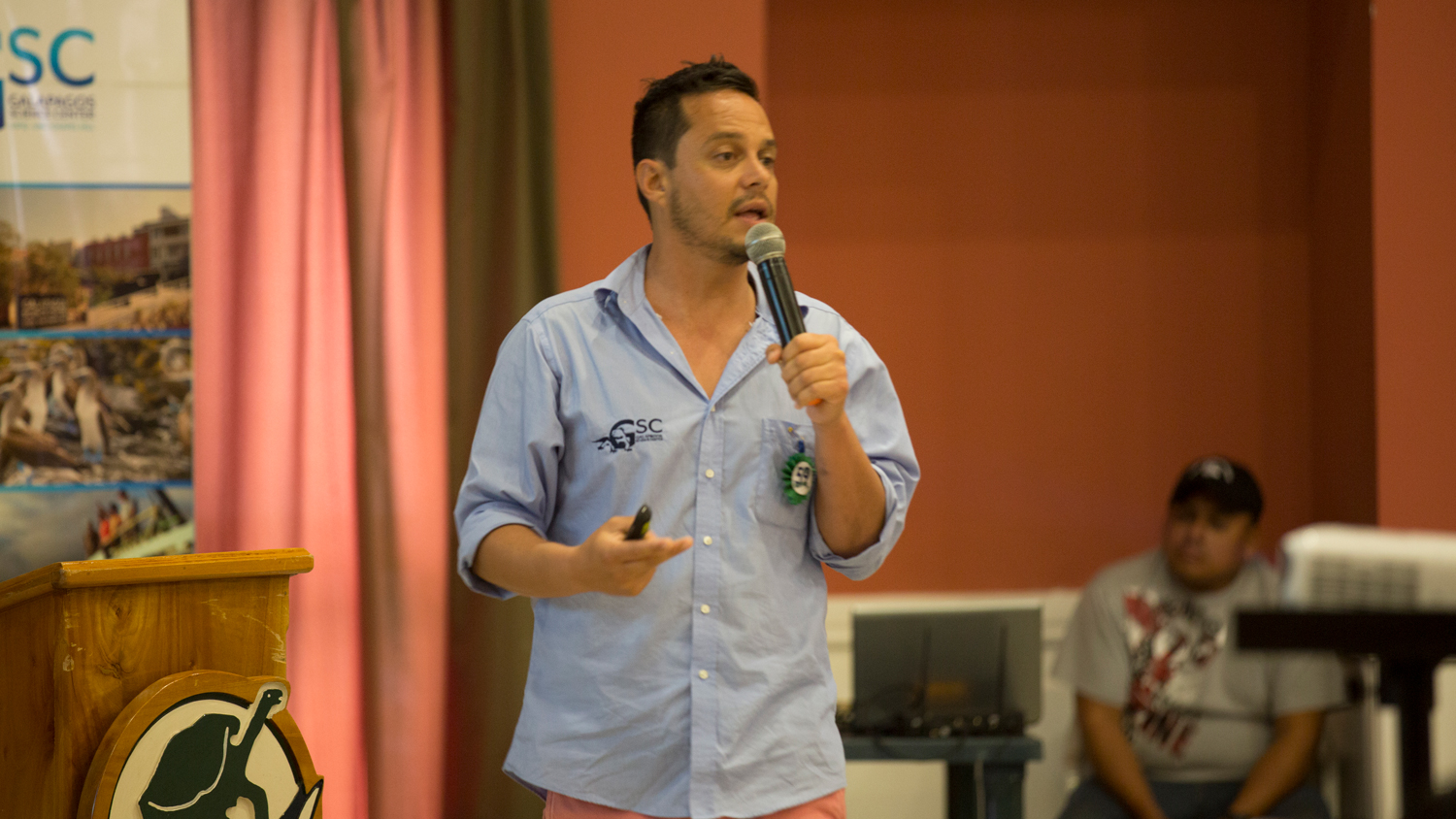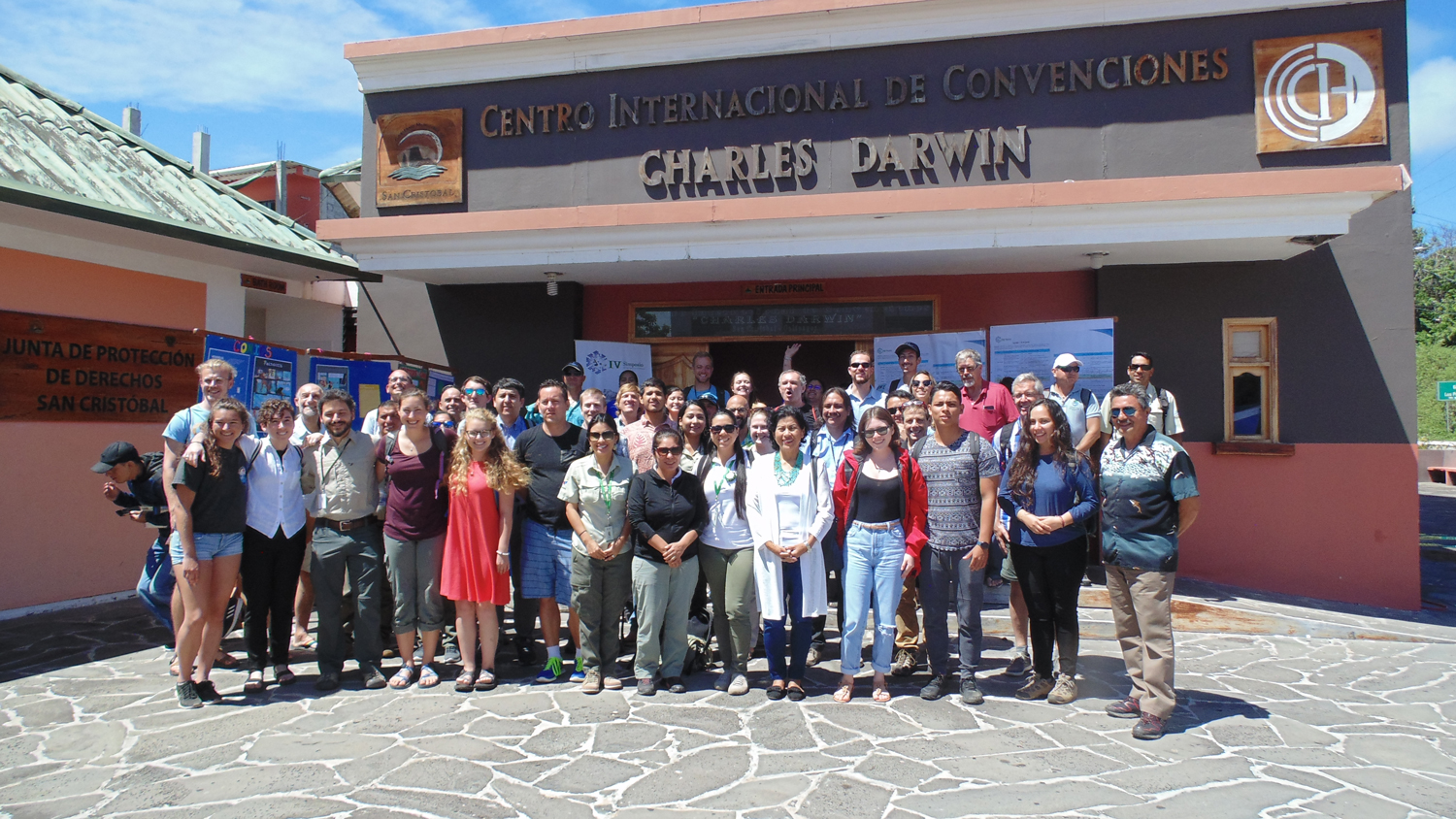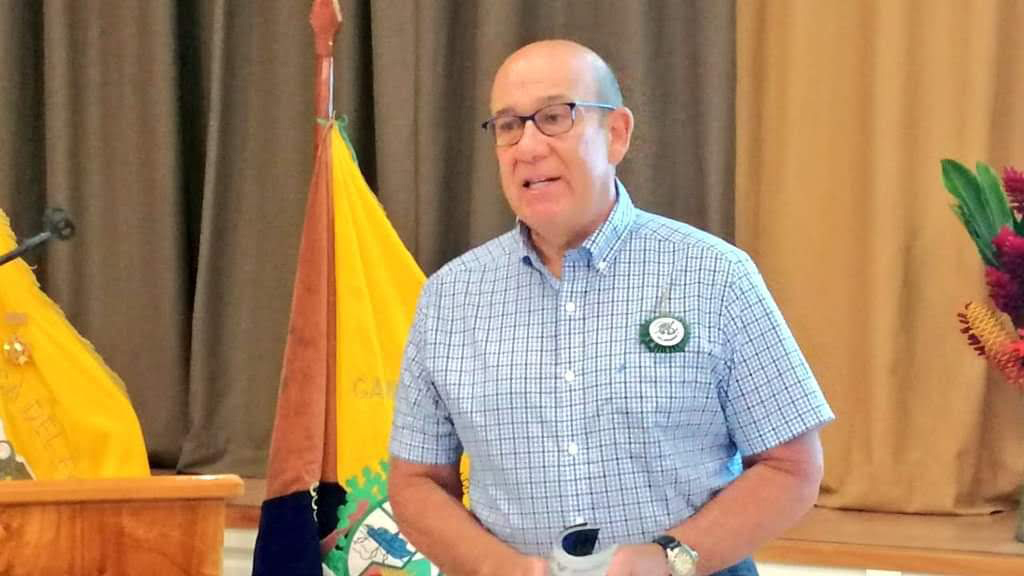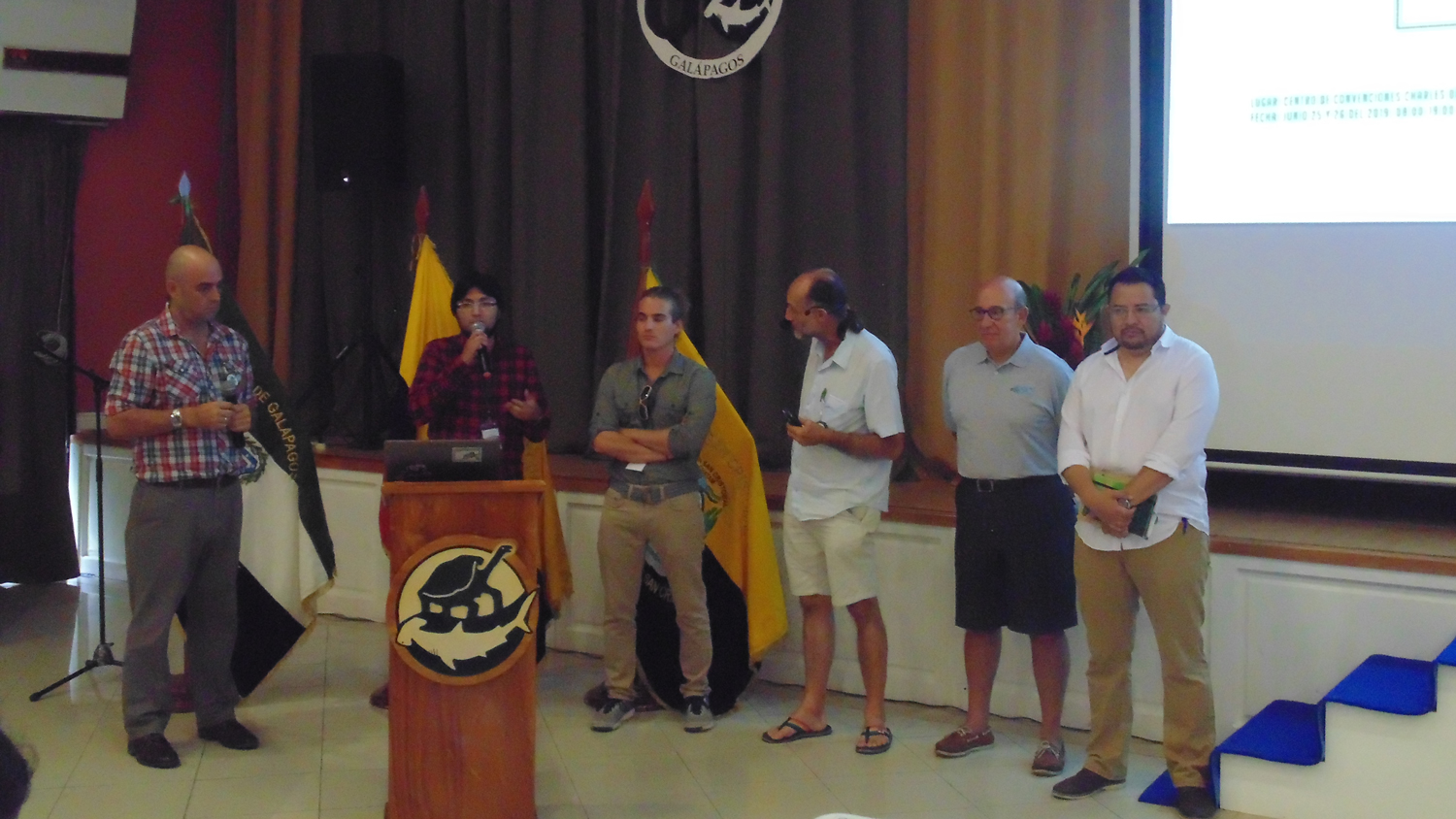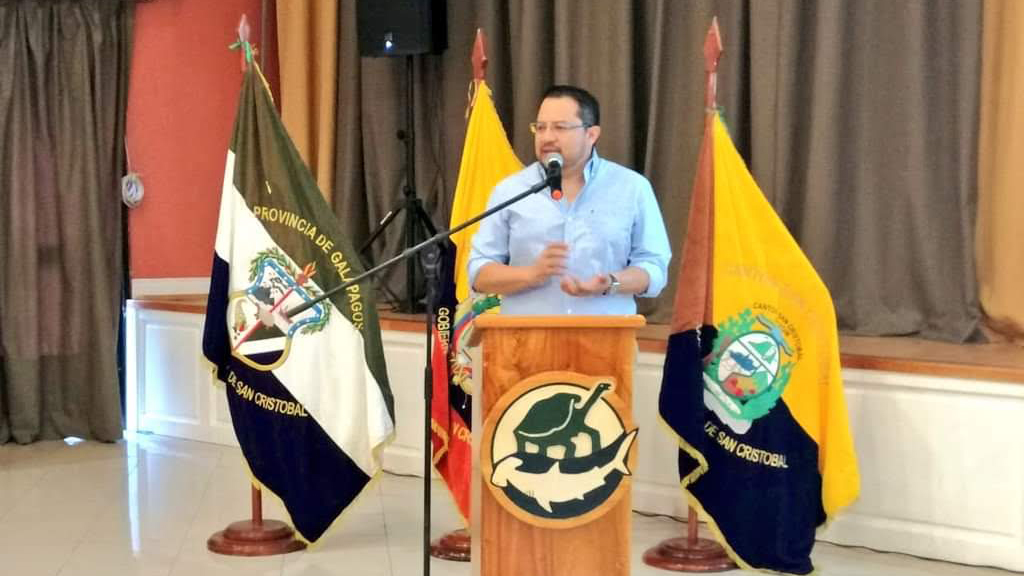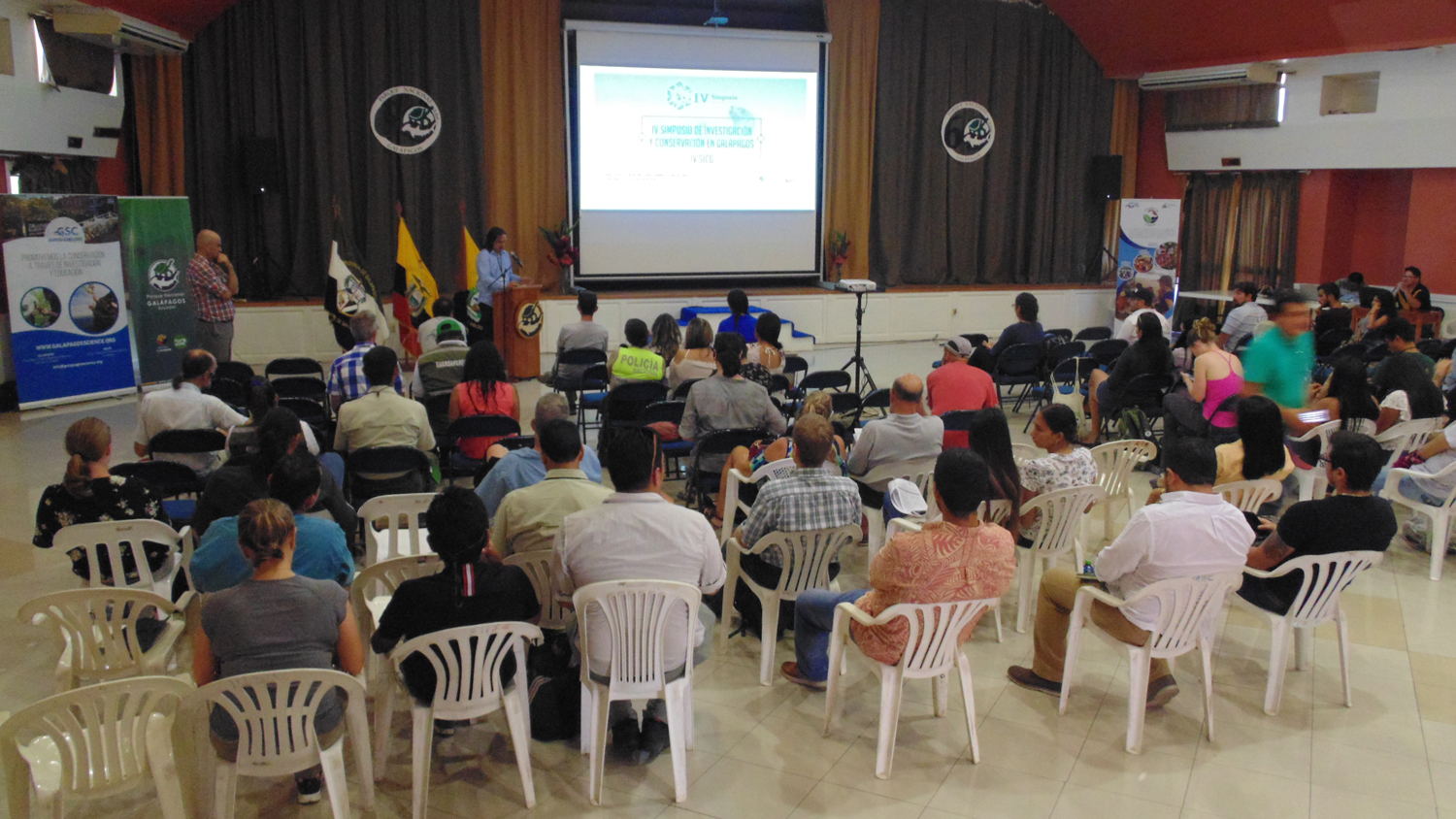6th Galapagos Research and
Conservation Symposium

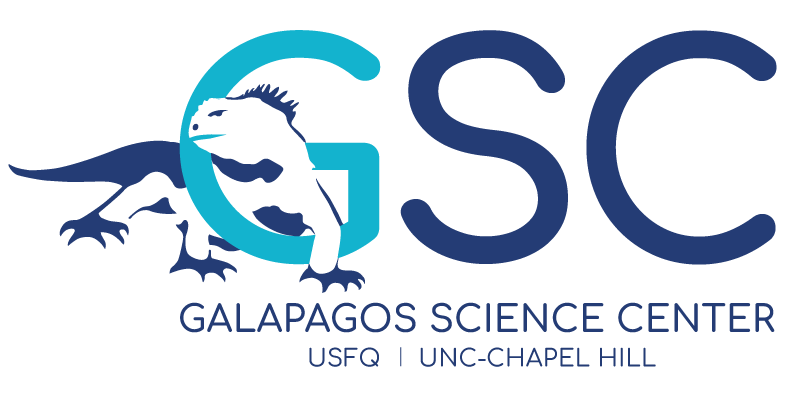


The 6th Galápagos Research and Conservation Symposium took place on Monday, July 15 and Tuesday, July 16, 2024 at the Charles Darwin Convention Center on San Cristóbal, Galápagos. This important multidisciplinary event was organized by the Galapagos Science Center, with the sponsorship of the University of North Carolina at Chapel Hill and the Universidad San Francisco de Quito with the endorsement of the Galapagos National Park.
The main objective of the symposium was to share information about the scientific research being conducted in the Galápagos Islands, including applied methodologies, current results, and future steps. During the event, 40 talks were presented, focusing on research and initiatives related to conservation, environmental change, biodiversity, and oceans, as well as topics related to the community and the local population’s health.
In addition to scientific presentations, the symposium offered networking activities, such as a panel discussion on “Food Security” and a poster session, where attendees were able to delve deeper into the topics and asked direct questions to the panelists.
The speakers are active researchers in the Galápagos, with extensive collaboration networks and a strong commitment to training the next generation of researchers in the archipelago. This event offered a unique opportunity for participants to collaborate on projects and create new national and international alliances and networks, which is vital for conservation success.
The symposium also aimed to promote community participation as presenters and audience members. This allows authorities to understand firsthand the needs and concerns of the population, providing valuable input for decision-making. This space informs the Galápagos community about the special and unique ecosystem in which they live, as well as the environmental and public health challenges they face.
Help us improve!
Please fill out the survey, it only takes 5 minutes.
Thank you!
HISTORY
The Galapagos Research and Conservation Symposium was established in 2016 with the primary objective of bringing together scientists from the Galapagos National Park Directorate, the Galapagos Science Center, and the Galapagos community to foster discussion, exchange ideas, and collaborate on scientific efforts related to the conservation of vulnerable island ecosystems and populations.
To learn more, please refer to the proceedings of previous events.
2023 – Proceedings of the 5th Galapagos Conservation & Research Symposium GSC–DPNG
2019 – Proceedings of the 4th Galapagos Conservation & Research Symposium GSC–DPNG
2018 – Proceedings of the 3rd Galapagos Conservation & Research Symposium GSC–DPNG
2017 – Proceedings of the 2nd Galapagos Conservation & Research Symposium GSC–DPNG
2016 – Proceedings of the 1st Galapagos Conservation & Research Symposium GSC–DPNG
Watch the videos of the previous events:


